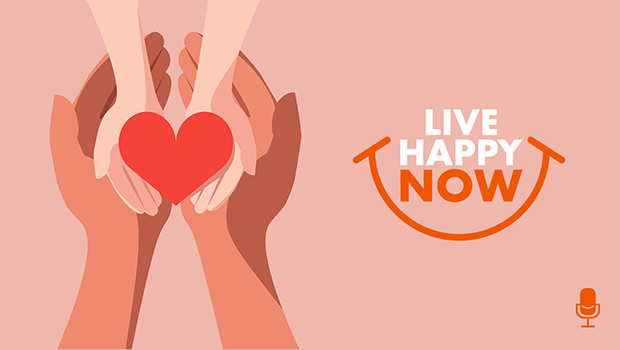While creativity once was considered the domain of artists, musicians and writers, today we’ve expanded our understanding of how it applies to our lives. Whether we’re talking a child into getting ready for school, substituting a missing ingredient in a favorite recipe or working on a new business plan, creativity is about coming up with fresh, new ideas, then putting them into action.
New research is disproving the old notion of the right brain as our creative center while the left brain is analytical and logical. New studies show creativity engages the entire brain, with different regions working together during various stages of the creative process. In other words, all of us have a creative network just waiting to be activated.
“All human beings have a capacity to be creative,” says Dr. Nancy Andreasen, Ph.D., a neuroscientist and psychiatrist. “People who like to cook are being creative—it’s not limited to producing great paintings or creating music or writing novels or making scientific discoveries. Some people enjoy gardening…learning to play a musical instrument....There are all kinds of things that people do that are creative.”
The positive feelings our brains generate during our creative pursuits put us in a state of “flow,” during which we become completely immersed and in tune with what we are doing. This leads to a feeling of joy not only while the task is being performed, but after it is completed.
“Once those creative juices start flowing, and you’re no longer focusing on your own life or problems, you get into that flow state where you’re working and the positive feelings are being reinforced,” says Shelley Carson, Ph.D., a Harvard psychologist and the author of Your Creative Brain. “It’s a great way to enhance your mood.”
Whatever Happened to the Tortured Artist?
The idea of creativity feeding happiness—and vice versa—flies in the face of the long-held belief that pain and suffering are prerequisites for creative genius. Through the years, great creative minds seemed to reinforce the argument, with notables like Sylvia Plath, Emily Dickinson, Tchaikovsky, Vincent van Gogh, Ernest Hemingway and others showing mood disorders.
Nancy, a professor of psychiatry at the University of Iowa and winner of the National Medal of Science, conducted some of the first empirical studies on the links between creativity and depression and other mental illnesses. But, despite the connection, Nancy found that 20 percent of the writers from the Iowa Writers’ Workshop she studied had what she describes as “big ‘C’ ” creativity—what she calls an extraordinary example of creativity, “like discovering something that leads to a Nobel Prize.”
“They were just more well-balanced—or they were lucky,” Nancy says. “They tended to come from families that also did not have mental illness.”
Other studies done both with depressed and non-depressed subjects have shown that creativity enhances moods—which is why things like music therapy, art therapy and dance therapy have proved successful. However, the myth of the tortured artist is strong enough that some resist getting help, fearing they’ll lose their inspiration.
Julia Cameron, author of more than 30 books, including The Artist’s Way: A Spiritual Path to Higher Creativity, has known artists who resisted exploring happiness because they were afraid of losing touch with their creativity. On the other hand, she’s worked with people who are hesitant to explore their creative side for fear it will ruin their stable life.
“We have a certain mythology around creativity that simply is not correct,” she says. “We have been brought up to believe that artists are broke and tortured and crazy. When I say, ‘Let’s become an artist, let’s play, let’s get in touch with our inner resources,’ people are frightened. They believe they can’t be happy if they become an artist, but the opposite is true.”
Julia believes that all of us are artists, regardless of whether our medium is a kitchen stove, computer keyboard, blank canvas or tool shed. “Artistic, creative people are solvent, they’re happy; just start working on your creativity and watch what it does for you.”
But the happiness effects of our creativity extend beyond us and can bring happiness to the people enjoying our work, Nancy says. “If you are a creative cook, you can survey what's in your garden and what's in your refrigerator and spontaneously come up with a new combination of things that you then serve to your family, spouse or whoever,” she says. “That's very happiness-generating.”
Being creative—and enjoying the effects of creativity—doesn’t mean you need to become a world-renowned chef, sculpt like Michelangelo or write like Hemingway or sing like Elvis. Being creative can be as simple as writing down your family history, making up silly songs or taking an art class.
“It’s never too late to discover your creativity,” Shelley says. “There are wonderful implications from exploring creativity, regardless of your age.”
This article originally appeared in the October 2014 issue of Live Happy magazine.
Read More









